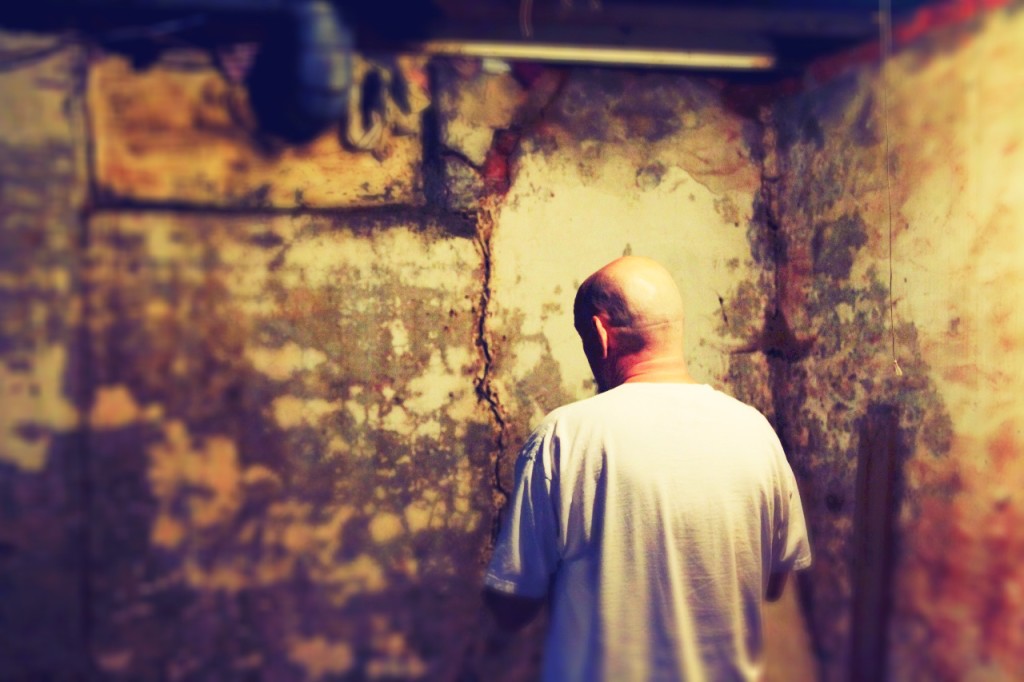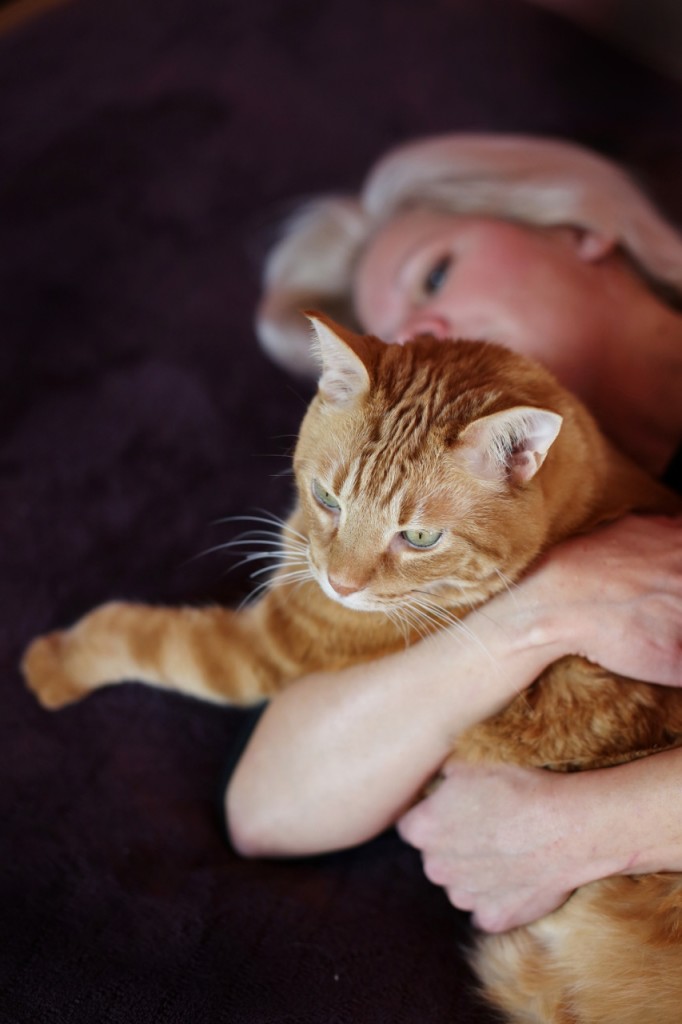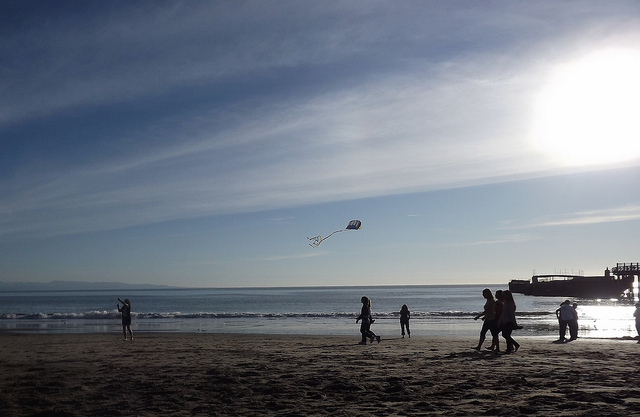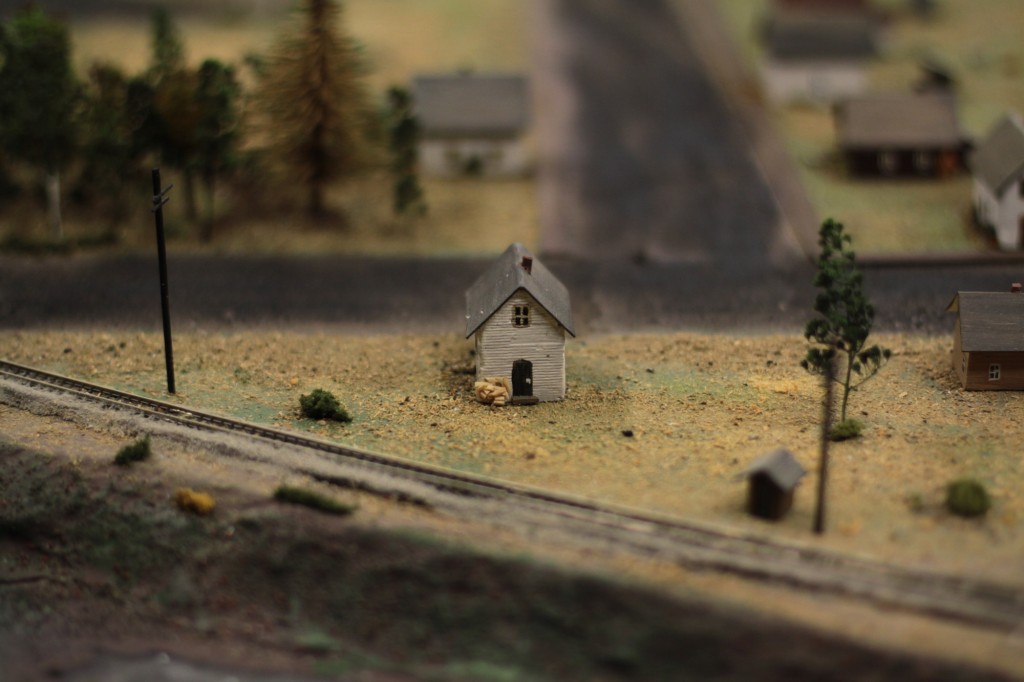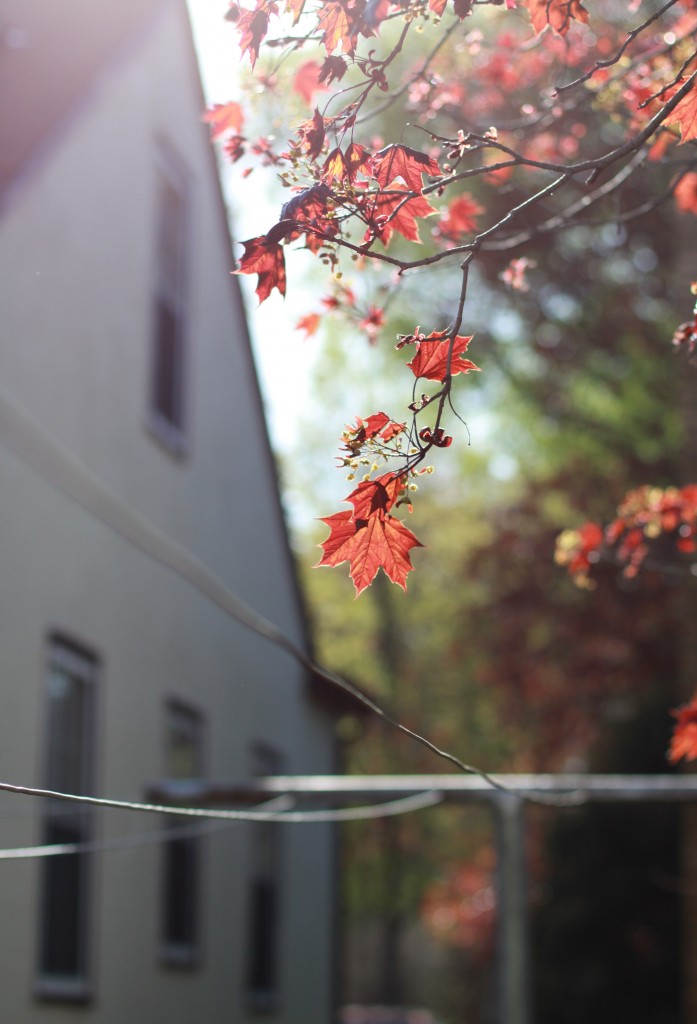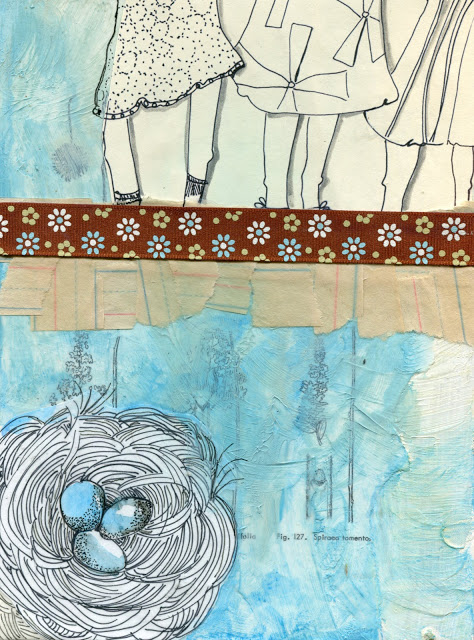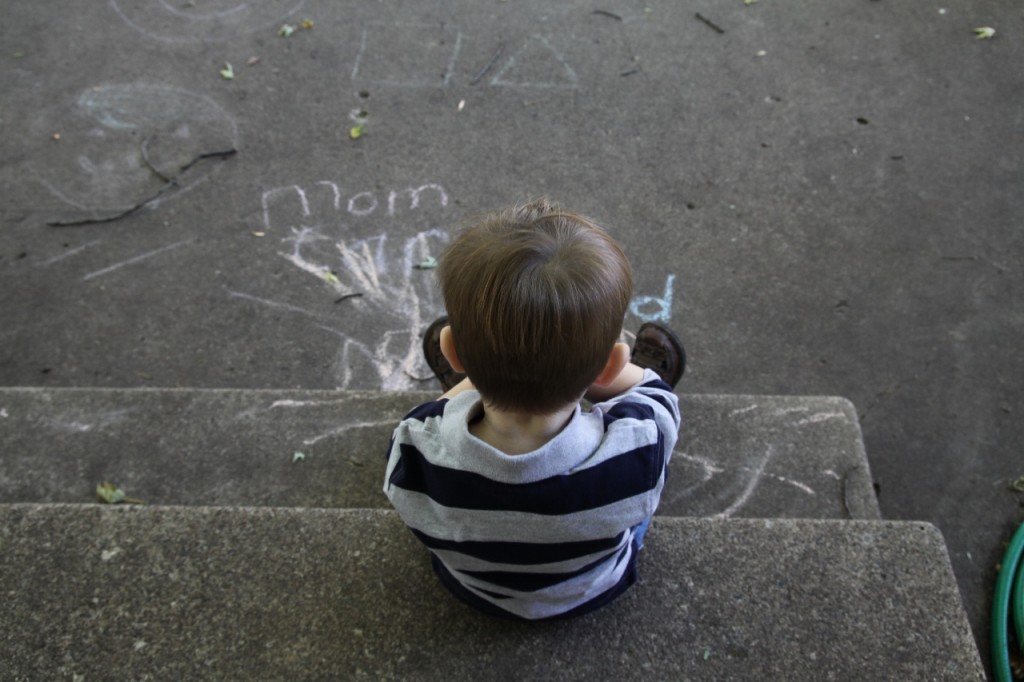
By Jennifer D. Munro
“It’s too soon,” I hissed at Richard, on the phone with his mom.
Millie planned to fly in for Thanksgiving, less than three months after six-year-old Ben had been placed with us. We were still navigating a precarious new existence as a nuclear family. Nuclear bomb was more like it. But Millie had waited two decades since our wedding for us to produce a grandchild and her ensuing visit was inevitable, like ptomaine after eating undercooked poultry.
“Sure, you can stay here,” Richard said to Millie.
I waved at Richard like the guy with the light wands on the airport tarmac, trying to prevent a jumbo jet from crushing a baggage handler. “Where?” I mouthed.
Richard and I took turns sleeping on the daybed in my office next to Ben’s room so that one of us would be near if he woke up disoriented. We were his twelfth family. He’d recently fallen asleep in his booster seat on the way to see Kung Fu Panda, and when I nudged him awake in the theater’s parking lot, he wailed in terror, having no initial remembrance of who I was: his newest mother.
Richard turned his back on me to finish the phone conversation, then hung up and faced me. “She’ll cook the whole Thanksgiving dinner. She’ll make Ben his own special pie.”
“You know what we were told in all of the foster-adoption training sessions, over and over, about new families and holidays.” Keep it mellow and uneventful, trainers droned around their ubiquitous cough drops. We’d practically been tattooed with Beware the Holidays, as full of triggers as an NRA rally. Had Ben eaten turkey or ham for Thanksgiving with his most significant foster families? Said a prayer or made fart jokes? Football game on or off? Canned or fresh cranberry sauce? Sat at a formal table like Richard’s family, or, like mine, eaten off doubled paper plates balanced on our knees?
“Look how relevant the rest of the training’s been,” Richard pointed out. True, I never referred to the training binders. Instead, I scrawled WILD ANIMAL TRAINER in my notebook and jotted down techniques after coming across a nature article and thinking: That’s what I am. Not a parent. I’m that killer whale trainer who gets seized by her ponytail, pulled into the tank, and worried to death.
But the adoption trainers were onto something with their dire predictions about trip-wired family celebrations. After a dinner out for my October birthday, Ben had refused to get in the car with us. He’d stood on the sidewalk between the car and the restaurant and hocked loogies at the windshield in front of my face. Nothing had gone wrong to set him off: I was simply the most recent in a long line of mothers, being honored though I, too, would surely send him packing. Only time would show him he wasn’t going anywhere.
“What should we do?” I’d asked Richard as Ben paced, working up more spit wads, swearing like a Pulp Fiction character while the diners inside looked on. My heart rate had escalated and my margaritas grandes had blared in my bladder like a mariachi trumpet as I’d prepared to exit the car and navigate a public scene without getting arrested.
“Hit the wipers.” Richard, slouching, had flipped the switch. Not reacting came easier to him than to me. Provoking him was like trying to get a rise out of a thermometer with no mercury. He was so laid back that a doctor once told him his blood pressure was so low he should be dead.
The rubber blades had swished the ooze trails across the safety glass—would that our fragile new family hold together as well under impact.
We’d laughed—surprising Ben. Our mixture of pragmatism and gallows humor enabled us to survive each day and face the next. All of Ben’s other parents had caved in or kicked him out in response to his behaviors. We were the first to put a replacement pair of eyeglasses on his face within twenty-four hours of his snapping the first pair in his fists, and he knew he’d lost that battle. The first who kept a patch on his lazy eye, like keeping a cone on a feral cat. To deny him dessert until he ate his vegetables; we learned that Brussels sprouts float after he tried to flush them. Unconditional love, maybe, but with a steel backbone. Ben needed boundaries. He needed parents, not buddies. I would have failed had I not had a spouse as unflappable as a manatee.
Ben had seen us laughing and got in the car.
Now Millie—a mother who had let her children roam safely free in their Midwestern suburb every afternoon until she rang the dinner bell, who never disciplined her kids, whose teeth I’d never seen behind her close-mouthed smiles—was going to land in the middle of our Pythonesque reformatory.
Land mines littered our upcoming Thanksgiving tableau, and who knew which one a corncob might set off? I needed more tension in the house like I needed a bucket of gasoline to douse a fire.
But Richard could not refuse his mother her visit. We both knew that. He continued placating me, repeating her promises to him: “She’ll do all the cooking that whole week. And watch Ben during the days so you can work.”
I hesitated. Another ugly parenting surprise had blindsided us: the local schools shut down for the entire Thanksgiving week. I was telecommuting while on partial maternal leave, a complicated arrangement; Richard worked late several nights per week; we were both wracked with deep, hacking coughs but had no time or energy to manage a doctor’s visit; and I dreaded the fifteen-hour stretches alone with Ben. Much the same as I felt about being alone with Millie. Over the decades, we’d managed to overcome our embarrassingly clichéd history of discord by keeping things as shallow as a cookie sheet. Living two thousand miles away from each other helped.
Richard shrugged. “It’ll all work out. Don’t worry.”
Easy for him to say. Millie liked to say that her pet peeve was turning off light switches. I refrained from correcting her that her pet peeve was really people leaving lights on. The problem was that Millie turned off lights when I was still in the room.
Millie had raised her firstborn alone for a few years after leaving her first husband and returning home with a newborn to the Midwest and her grim mother. In his mid-forties, Richard still could do no wrong in her eyes—other than having married me, her only palatable explanation for his living his entire adult life on the other side of the continent.
I would be sandwiched between Millie’s and Ben’s hostility like slaw in a shredded pork grinder.
“And she’ll hem Ben’s pants,” Richard added.
“Dirty pool.” I’d begun to hope that saggy-pants, with resultant dragging hems, would last through Ben’s adolescence, so I wouldn’t have to learn to work the borrowed sewing machine, as perplexing to me as busy moms looking stylish at PTA meetings; shaved armpits and clean underwear meant a presentable day for me.
I sighed, defeated with that last bit of blackmail. When I first traveled to Millie’s house as a newlywed, she commanded me to scrub off my hand lotion; she was allergic to the smell. With a long arm and pointed finger, she sent me from the room, which she aired to erase any trace of me. She’d never learned to spell the last name I’d kept when we’d married.
Yet here was an olive branch in the form of domestic help, of wanting to be a grandmother. Millie’s highway anxiety had grown so pronounced that she could no longer drive except on her suburb’s local roads, so this was no spindly peace offering, this offer to fly solo, cross-country, to welcome her newest family member.
•••
In advance of her arrival, Millie began shipping low-fat, low-salt, special diet ingredients for allergies I’ve never understood, such as adverse reactions to all ice cream except Haagen-Dazs. At a restaurant once, she ordered plain spaghetti—no sauce, no oil, no cheese, just coagulating noodles.
With no holiday planning of my own to do now, I came around quickly to the idea of a handy mother-in-law underfoot, and I readjusted my attitude to look forward to her arrival. After all, she had managed to birth and raise a pretty decent fellow I called my husband.
We rented a bed for her and used rugs, curtains, and wall hangings to soften and decorate Richard’s den, which had once been a garage. Quirky, makeshift lodging symbolized risk and adventure to Richard and me. But Millie’s home décor was beige and could pass as a dentist’s waiting room, lovely in a nondescript way.
Millie arrived with massive amounts of baggage for a stay of less than a week.
At a glance, she diagnosed Ben as having her same food allergies. I didn’t protest, figuring her bland ingredients wouldn’t hurt him for a week. The cook got carte blanche on the menu, as far as I was concerned.
We muddled through the days pleasantly. I was a mother now, a visible person with substance. Millie was Ben’s grandmother and great with kids. Two decades of sandpaper relations had worn down our splinters. Maybe we weren’t lustrous mahogany, but veneer would do.
I gladly shopped for everything on Millie’s list and chewed (and chewed) her spice- and additive-free dinners, where the color and taste of all three food groups resembled tree bark. I loved and appreciated every morsel and frequently requested seconds. Ben learned to say, “Yum,” before asking, “What is it?” To be fair, he asked me this question nightly, remaining suspicious of anything that didn’t come from a McDonald’s bag, and I’m no Julia Child.
Hell, I would have adopted Charles Manson years earlier if I’d known it would bond me and Millie. I’d finally discovered the hidden plus-side to in-laws. My only job was to keep out of her way as she took over my kitchen and complained about my pans and stale sage, which didn’t bother me. No less than a birth mother with a newborn, I welcomed her gift of sustenance and nourishment, and her presence was a relief rather than a thorn.
But a few days after her arrival and the day before Thanksgiving, Millie woke up and declared that she had a sore throat and was staying in bed. No cooking. No Thanksgiving prep. No childcare. I placed a distress call to the community center where Ben now went after school so he could work on social skills and I could roll out my yoga mat but watch hockey highlights on my laptop instead. The community center took Ben for the day. Ben had never been there for a full day, and I didn’t know I was supposed to pack him a lunch. The other kids and counselors all shared their food with him, a scene straight out of a TV holiday drama.
Millie would never have made such a mistake.
When Richard got home from work early that afternoon, Millie announced that she was packing her bags and taking the first flight home, possibly before Ben got home from day camp to say goodbye.
Richard took me aside. “What happened between you two while I was gone?” he yawned.
“Nothing! I liked having her here! I was working! I left her totally alone except when I asked her if she needed anything from the drugstore.” I thought Millie preferred me invisible. “I was in the canned food aisle forever yesterday trying to find that special salmon she asked for.” I had come home with the wrong thing, but she still had been gracious.
She told Richard that she missed her husband, who had stayed home to care for the Shi-Tzu-Poodles, and hated her bed and room. It was cold in Seattle, and she needed the Florida sun (their snowbird home) to recuperate. She needed The Price is Right, which she called The Drew Carey Show, but we’d gotten rid of our television when Ben moved in, to keep a calm and quiet environment. She repeated that she had a sore throat.
“Sore throat?” Richard shouted at Millie. “Sore THROAT? SORE THROAT? Boo-fucking-hoo! I’ve been sick for three months and it doesn’t fucking matter! You’ve been promising Ben his own pie, and you’re going to stay and bake him a fucking pie!”
Boo-fucking-hoo? Ah, bittersweet moment. I’d been waiting since the Bee Gees were at the top of the Billboard charts for Richard to stand up to his mother, too much to expect. It’s difficult even for me to voice concerns in my loudmouthed family, and Richard’s family doesn’t quarrel. Millie leads a quiet family discussion, and then everyone does what Millie decides. No voices raised, problem buried—except that cow patties continue to emit methane. Easy to criticize, yet Richard is one of the few people I know who describes his childhood as happy.
Richard’s crazed yodeling to his mother continued: “This is about Ben, not you, you got that? You are not going to let this child down! He’s had too much of that already from too many people! He’s six, and you’re sixty-six. Grow the fuck up!”
Suddenly, Richard had a button. He’d never had one, much as I’d tried over the years to sew one on. He was now a Dad: Do not mess with his kid.
But then the world tilted further on its axis when it turned out that Millie’s problem was not me, nor Ben’s troubling behaviors.
The problem was Richard—no longer the easygoing man often mistaken for The Dude, but the strict disciplinarian he had become in order to keep ourselves and our son safe. A black-and-white-rules parent—the parent his child needed, not the parent he’d always thought he’d be.
When Ben weakly punched Richard’s stomach at a party, Richard moved out of reach, reprimanded him, and followed through with the consequence of immediately leaving a party barely started.
When Ben threw a scooter at us, Richard confiscated the scooter.
When an angry Ben took a crayon to the table, Richard handed him cleaning supplies.
I was as firm as tofu and would later be sent to specialized parenting training for wimps, but Richard had a monolith spine.
When Richard told Ben’s therapist about the lenient, lackadaisical kind of dad he’d like to go back to being someday soon, with a motto of love them and let them be—the kind of parents he had—the therapist shook his head and said, “I find that kind of parenting just does not work at all for these kinds of kids.”
Millie called Richard a dictator. She called him Hitler. She phoned her husband to say she was being held hostage. She got two digits in to 9-1-1 to report a domestic violence incident though Richard had come nowhere near her. Downstairs, I pressed myself flat to the wall (okay, sort of bow-shaped, since my fanny won’t quite allow flat) to stay out of it.
Richard had never in his forty-five years spoken an unkind word or raised his voice to his mother. Although I had longed for—and sometimes insisted upon—this moment, there was nothing joyous in finally hearing Richard tell his mother off. That he was this near to the edge was no victory. He backed down and apologized to her, immediately, sincerely, and repeatedly. He moved her into our bedroom.
When Richard and I flew to the Midwest for Christmas one year, Millie spent three days cooking the holiday meal, filling the entire upstairs and downstairs refrigerators, pantries, and freezers. Millie’s mother sampled her dinner plate, then pushed it away, saying, “My daughter never could cook.”
Her gesture symbolized her feelings for a fatherless baby she can’t have wanted—“She doesn’t talk about it,” Millie cut me off when I once asked them for the story—and never demonstrated loving or appreciating. Yet that daughter took care of her for years, all through a slow, aggrieved decline, dropping everything, time and time again, to respond to her needs.
Millie broke the cycle of bitterness by bestowing unconditional love and nary a critical word upon her children, instilling in them a strong sense of confidence. A self-assurance that allows her son to follow his unerring instinct on what is best for his child, for whom unconditional love is simply not enough.
•••
Millie awoke early Thanksgiving morning to make Ben his pie and salvage the meal. She blended and boiled, the salt can nowhere in sight. Swamp water under the bridge, I thought with relief, but she and Richard tangled again, this time in hushed shouts over what I think was a pan of gravy, though it was difficult to distinguish from the other dishes. Ben was home, so they kept it down.
Still, the tension transmitted itself through the house like the urine fumes that soon followed. Our Labrador peed on the floor. Ben peed on the floor. They peed upstairs, downstairs, and on the stairs. I dashed between them with rags.
I inserted myself between Richard and his mother. If I never expected Richard to give his mother a piece of his mind, I expected even less that I would stop him if he ever did. “You two need to stop. You’re traumatizing Ben.”
“You will not do this to my family,” Richard hissed at his mother over my head. “You need to leave. Right now.”
Richard’s “family” had always to him meant his birth family, the people he’d grown up with and then left at age nineteen, never to return. Unable to have children despite trying for ten years, I insisted that he and I were a family, nonetheless, but he could not agree. “We are a couple, not a family,” he maintained. Pets didn’t count. No amount of crying or arguing could dissuade him from this belief. I couldn’t change his feelings, and he couldn’t change his feelings, although he knew they hurt me. We’d been round and round that mulberry bush multiple times.
Now, suddenly, Ben and I were his family, and I knew he would protect us with his caveman’s club even if he died in the attempt.
For that I was thankful.
Millie’s last words to Richard as she wrestled her baggage out the door was, “Well, your wife didn’t want me here, anyway.”
“No, wait! I wanted you here! I liked having you here!” I wanted to protest.
My words wouldn’t have made a bit of difference. She punted her words of reproach to my corner of the triangle rather than finding fault with her own child—which her mother had done too much of.
She cherished her kids, even when she’d brought her first baby back home without its father—exactly repeating her resentful mother’s young single motherhood scenario but choosing to adore her baby instead. Reading Ben’s two-thousand-page case history that filled an entire IBM box, I had a clear understanding of how hard it is to break family cycles, but this she had done. Just as Richard was now a different type of parent than the limp-noodle variety she’d modeled.
“What do I say to Ben?” I asked instead.
“Tell Ben I’m dead,” she said.
But something else had died: the notion of the parents we thought we’d be, the type of children we had once been, and the parents we thought we had.
Richard drove his mother in silence to the airport Hyatt while I threw her turkey in the oven and tried to figure out what the rest of the tan dishes were supposed to be.
We told Ben that Millie left because she was sick, but Ben knew better. Everyone in Ben’s life had left him, and now Ben’s new grandmother had left him, too.
I’d always gotten bone-deep satisfaction from sucking up drippings with the turkey baster and squirting hot fat over the browning carcass, a primal urge straight out of the Iliad’s sacrifice scenes. But this year, I never opened the oven door. I didn’t interfere in what was best left with me out of it.
Millie’s bird was perfect. Crisp on the outside, succulent on the inside.
That evening I set out the salt shaker and my grandmother’s plates, and my family sat down to give thanks.
I always regretted not stepping to Millie’s defense that Christmas when her mother criticized Millie’s meal. I had waited for someone else in her family to say something, but nobody had.
I wish she could have heard the praise for the meal she prepared for us before flying the coop.
I steeled myself for Ben’s certain meltdown, but he seemed newly centered. Someone else had been sent packing, but Ben stayed. His father had stood his ground to fulfill the promise made to his son.
We let Ben eat his pie first.
•••
JENNIFER D. MUNRO is a freelance editor whose blog, StraightNoChaserMom.com, is the First Place Winner in the 2015 National Society of Newspaper Columnists blog competition (under 100,000 monthly readers category). She was also a Top Ten Finalist in the Erma Bombeck Global Humor competition. She’s a regular contributor to Full Grown People, and her work has also been featured in Salon; Brain, Child; Literary Mama; Best American Erotica; and The Bigger the Better the Tighter the Sweater: 21 Funny Women on Beauty and Body Image. Her humorous stories about sex and the sexes are collected in The Erotica Writer’s Husband. Website: JenniferDMunro.com.

 Follow
Follow
